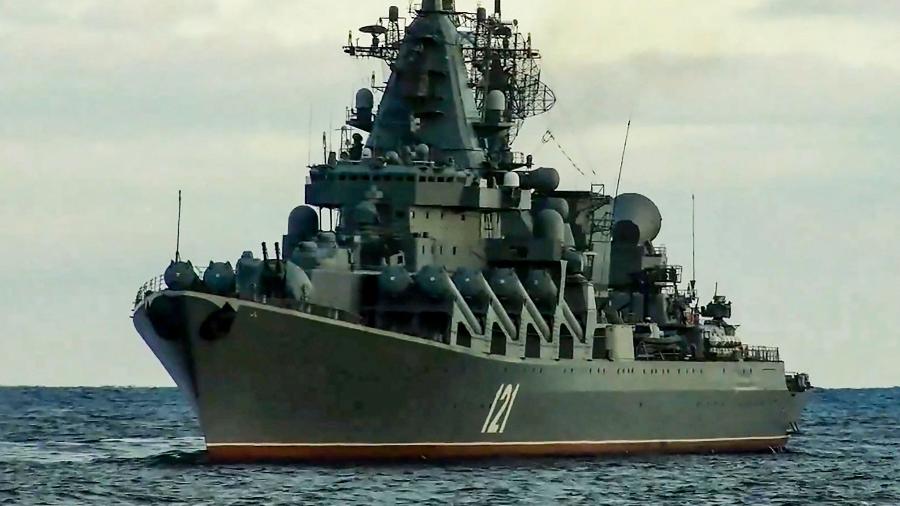More than 450 foreign components have been found in Russian weapons found in Ukraine, strong evidence that Russia acquired critical technology from companies in the United States, Europe and Asia in the years before the invasion, Royal United reported Monday. RUSI), a defense-related think tank.
Since the start of the war five months ago, the Ukrainian army has seized, partially damaged or recovered Russian weapons from the battlefield. When dismantled, 27 of these weapons and military systems, from cruise missiles to air defense systems, turned out to be predominantly Western components, in what is the most detailed assessment yet published of the role Western components played in Russia’s war against Ukraine. .
About two-thirds of the components were manufactured by US-based companies, RUSI found, based on weapons recovered from Ukraine. Products made by US-based Analog Devices and Texas Instruments represent nearly a quarter of all Western components in weapons. Other components came from companies in countries such as Japan, South Korea, Great Britain, Germany, Switzerland, and the Netherlands.
“Russian weapons, which rely heavily on Western electronics, have killed thousands of Ukrainians,” Jack Watling, an expert on Russia’s land warfare, told Reuters.
While many foreign components are found in everyday household items such as microwave ovens, which are not subject to export controls, RUSI emphasized that tighter export and enforcement restrictions could make it difficult for Russia to replenish its arsenal of weapons such as cruise missiles.
In one case, the Russian 9M727 cruise missile, one of the country’s most advanced weapons that can maneuver at low altitudes to evade radar and hit targets hundreds of kilometers away, contained 31 foreign components. The parts were made by companies including US-based Texas Instruments and Advanced Micro Devices (AMD), as well as Cypress Semiconductor, now owned by Infineon AG, a German company.
In another case, the Russian KH-101 cruise missile, which was used to attack Ukrainian cities, including the capital Kyiv, also contained 31 foreign components with parts made by companies such as the US-based Intel Corporation and AMD’s Xilinx.
Asked how their chips got into Russian weapons, the companies confirmed they were complying with trade sanctions and stopped selling components to Russia. Analog Devices has indicated that the company has closed its business in Russia and instructed distributors to halt shipments to the country. Texas Instruments said it follows all laws in the countries in which it operates and that the parts in Russian weapons are designed for commercial products. Intel noted that it “does not support or condone the use of our products to violate human rights.” Infineon has expressed itself as being “extremely concerned” if its products are used for purposes they were not designed for. AMD said it strictly follows all global export control laws.
Many foreign components cost only a few euros and before the invasion of Ukraine, Russian companies could buy them online, through local or international distributors, because they could be used for non-military applications.
However, more than 80 microchips made in the West have been subject to US export controls since at least 2014, meaning they would need a license to be shipped to Russia, RUSI reported. Russian military or for end military use, according to RUSI.
The investigation noted that the Russian military continues to rely on foreign microchips for everything from tactical radios to drones and long-range precision munitions, and that Western governments have been slow to limit Russia’s access to these technologies, especially after Russia’s invasion. President Vladimir Putin in 2014.
Russian forces fired more than 3,650 missiles in the first five months of the war, according to the National Security and Defense Council team. These missiles include the 9M727 and Kh-101. Russia is currently looking for new ways to ensure access to Western chips, Rossi denounced. Many components are sold through distributors operating in Asia, such as Hong Kong, which acts as a gateway for electronic components that reach the Russian armed forces or companies acting on their behalf, RUSI has found, ensuring that Russia’s armed forces can be permanently weakened if governments strengthened Western export controls have succeeded in shutting down clandestine procurement networks in the country and preventing the manufacture of sensitive components in countries that support Russia.

“Wannabe internet buff. Future teen idol. Hardcore zombie guru. Gamer. Avid creator. Entrepreneur. Bacon ninja.”

